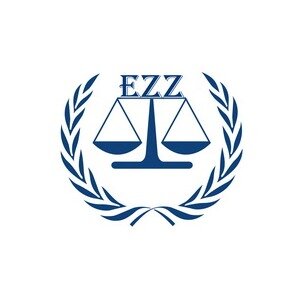Best Landlord & Tenant Lawyers in Abu Dhabi
Share your needs with us, get contacted by law firms.
Free. Takes 2 min.
Free Guide to Hiring a Real Estate Lawyer
List of the best lawyers in Abu Dhabi, United Arab Emirates

The Black Robe For Legal Consultancy & Debit Collection
1 hour Free ConsultationUnited Arab Emirates Landlord & Tenant Legal Articles
Browse our 1 legal article about Landlord & Tenant in United Arab Emirates written by expert lawyers.
- Handling Dubai Rental Disputes: A 2025 Guide for Landlords and Tenants
- Introduction: Navigating the 2025 Rental MarketUnderstanding Dubai's Regulatory StructureDubai Land Department (DLD)Real Estate Regulatory Agency (RERA)Rental Disputes Center (RDC)The Legal Framework: Laws No. 26 and 33The Tenancy Agreement and Ejari RegistrationMandatory Registration RequirementsAutomatic Renewal ProvisionsThe 2025 Smart Rental Index RevolutionFrom Static Calculator to Dynamic AI SystemStar Rating System and Property... Read more →
About Landlord & Tenant Law in Abu Dhabi, United Arab Emirates
The Landlord and Tenant laws in Abu Dhabi, the capital of the United Arab Emirates, regulate the relationship between property owners and their tenants. These laws aim to provide a safe, fair, and equitable environment for both parties involved. Every agreement between landlords and tenants is governed by a lease or tenancy contract which includes details such as rent, duration of the lease, responsibilities of both parties, etc. These laws also specify the process for resolving disputes that might arise between landlords and tenants.
Why You May Need a Lawyer
You may need a lawyer in situations such as rental disputes, eviction cases, contract interpretation or renewal, or any legal issue related to property management. A lawyer can provide the necessary legal advice and represent you in court, if the matter escalates. It’s crucial to understand that even minor issues can become complex and demanding without proper legal counsel.
Local Laws Overview
Abu Dhabi’s Landlord and Tenant laws are outlined in Law No. 20 of 2006 and its amendments. Key points include:
- Both landlords and tenants must honor the terms of their lease agreement until its expiration.
- Rents can only be increased based on certain conditions set by the local municipal council.
- Landlords can't evict tenants before the end of the lease without a justified reason as per the stipulated causes in the law.
- In case of disputes, the parties should refer to the Rental Disputes Settlement Committee.
Frequently Asked Questions
1. Can a landlord evict a tenant before the lease contract ends?
As per the law, landlords cannot evict a tenant before the leases end without a justified reason. The reasons could include the tenant’s failure to pay rent, usage of property for illegal activities, or substantial damages to the property.
2. Is there a limit on increasing the rental amount each year?
Yes, landlords can only increase rental fees based on the limits set by the local municipal council. Any increase above these limits is considered illegal.
3. What happens if a tenant fails to pay the rent on time?
If a tenant fails to pay rent on time, the landlord is obligated to give them a notice period to rectify the situation. If the tenant still does not pay, the landlord can seek eviction through the Abu Dhabi court system.
4. Can a tenant terminate their lease contract earlier than agreed?
Unless otherwise stipulated in the lease, a tenant can terminate the lease early provided they give a notice period (commonly two months) and compensate the landlord as agreed in the contract.
5. What is the Rental Disputes Settlement Committee?
The Rental Disputes Settlement Committee is the legal body responsible for settling rental disputes in Abu Dhabi. They follow a specified process to ensure fair treatment for both parties.
Additional Resources
If you need more information, the Abu Dhabi Government website has a comprehensive section on housing and property laws. You can also visit the Abu Dhabi Judicial Department for legal resources or consult with local legal advice centers.
Next Steps
If you need legal help, the suggested next step would be to consult with a lawyer specializing in Landlord and Tenant laws in Abu Dhabi. You can find experienced lawyers through a legal directory, recommendation, or by contacting the local bar association. When dealing with a lawyer, always be prepared with all necessary documents and make sure you understand your rights and obligations.
Lawzana helps you find the best lawyers and law firms in Abu Dhabi through a curated and pre-screened list of qualified legal professionals. Our platform offers rankings and detailed profiles of attorneys and law firms, allowing you to compare based on practice areas, including Landlord & Tenant, experience, and client feedback.
Each profile includes a description of the firm's areas of practice, client reviews, team members and partners, year of establishment, spoken languages, office locations, contact information, social media presence, and any published articles or resources. Most firms on our platform speak English and are experienced in both local and international legal matters.
Get a quote from top-rated law firms in Abu Dhabi, United Arab Emirates — quickly, securely, and without unnecessary hassle.
Disclaimer:
The information provided on this page is for general informational purposes only and does not constitute legal advice. While we strive to ensure the accuracy and relevance of the content, legal information may change over time, and interpretations of the law can vary. You should always consult with a qualified legal professional for advice specific to your situation.
We disclaim all liability for actions taken or not taken based on the content of this page. If you believe any information is incorrect or outdated, please contact us, and we will review and update it where appropriate.
















